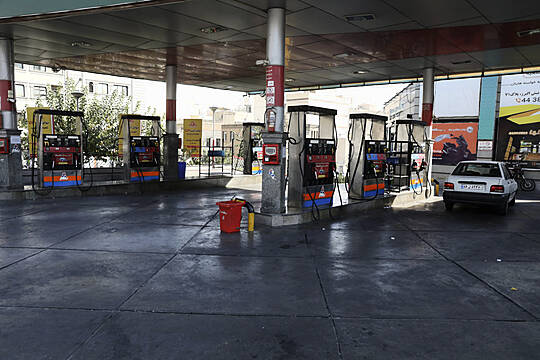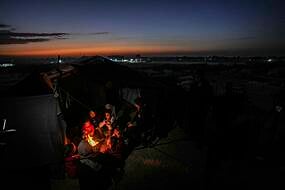A cyber attack crippled gas stations across Iran on Tuesday, leaving angry motorists stranded in long lines.
No group immediately claimed responsibility for the attack, which rendered useless the government-issued electronic cards that many Iranians use to buy subsidized fuel at the pump.
It bore similarities to another attack months earlier that seemed to directly challenge Iran’s Supreme Leader Ayatollah Ali Khamenei as the country’s economy buckles under American sanctions. Those economic problems worsen as the US and Iran have yet to jointly re-enter Tehran’s tattered nuclear deal with world powers.
State television quoted an unnamed official in the country’s National Security Council acknowledging the cyber attack, hours after it aired images of long lines of cars waiting to fill up in Tehran.
Associated Press journalists also saw lines of cars at Tehran stations, with the pumps off and the station closed.
“I have been waiting a couple of hours for the gas stations to reopen so that I can fill up,” said a motorcyclist who gave his name only as Farzin. “There is no fuel wherever I go.”

The semiofficial ISNA news agency, which first called the incident a cyber attack, said it saw those trying to buy fuel with a government-issued card through the machines instead receive a message reading “cyberattack 64411”.
Most Iranians rely on those subsidies to fuel their vehicles, particularly amid the country’s economic problems.
While ISNA did not acknowledge the number’s significance, that number is associated with a hotline run through Mr Khamenei’s office that handles questions about Islamic law.
ISNA later removed its reports, claiming that it too had been hacked. Such claims of hacking can come quickly when Iranian outlets publish news that angers the theocracy.
Farsi-language satellite channels abroad published videos apparently shot by drivers in Isfahan, a major Iranian city, showing electronic billboards there reading: “Khamenei! Where is our gas?” Another said: “Free gas in Jamaran gas station,” a reference to the home of the late Supreme Leader Ayatollah Ruhollah Khomeini.
State TV said Oil Ministry officials were holding an “emergency meeting” to solve the problem. Some petrol stations that accept only cash and are not in the subsidy card network continued pumping fuel.
The use of the number “64411” mirrored an attack in July targeting Iran’s railroad system that also saw the number displayed. Israeli cybersecurity firm Check Point later attributed the train attack to a group of hackers that called themselves Indra, after the Hindu god of war.
Indra previously targeted firms in Syria, where President Bashar Assad has held on to power through Iran’s intervention in his country’s grinding war.







